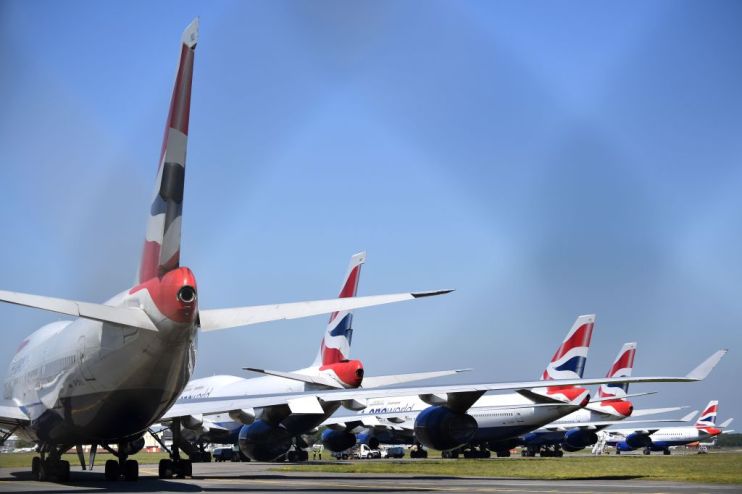Business travel will still matter in a post-pandemic world

The outcome of the Government’s review of lockdown this week may provide a glimpse of the steps necessary for economic recovery. Yet, the business community is fully aware that recovery will be a gradual process. There will be no magic panacea. Recovery requires long and careful planning and for many industries to work closely together.
I represent the business travel sector and believe it has its own critical role to play in our economic recovery. In a typical year it contributes £220 billion to UK GDP from the 6.5m business journeys it arranges. It is a lifeblood to airlines, train companies and accommodation providers, and an ‘invisible’ hand that helps turn our wheels of trade.
Read more: Virgin Atlantic join other airlines in redundancy moves
Our sector has a duty to enable British business to travel, trade and stimulate the UK economy. The Business Travel Association (BTA) recognises the many and complex challenges ahead in the fight against Covid-19, but firmly believes five key steps are necessary to get the business world travelling again:
Timeframe – Economies across the world are waiting for the first signs of an increase in demand for travel. Businesses are watching for borders, and the skies and rail routes between them, to open. In many countries, including the UK, there is indefinite advice against “all but essential” travel. No-one knows when travel can begin again. This missing date means consumers and businesses cannot be confident about future journeys. We need to move from a restriction of “All but essential” to “Essential business travel permitted”.
International co-operation and clarity – We need international coherence about what behaviours will be expected of future business and leisure travellers. Inconsistencies or contradictory advice will cause chaos. They will delay the resumption of recovery and block many needed business trips. For example, a 14-day quarantine required at both or even one end of a journey is a non-starter for global business executives. Consequently, we, the Business Travel Association (BTA), are arguing for a set of globally consistent guidelines on social distancing, the use of masks and other hygiene measures. Failure to adhere must result in penalties.
Protected travellers – Businesses are fully aware of the importance of face-to-face interactions in striking new deals, establishing partnerships and securing new business. Many will have trips planned and will be increasingly frustrated they cannot travel. Yet, even when we get the green light from Governments and travel providers, there is still another important need – making sure employees are safe. This requires insurance to cover employees when they travel and, in case of disruption or infection, that businesses’ actions won’t cause employee concern or dissent. The market needs to have these new policies readily and easily available.
Safe services – Corporate travel managers, who are often intimately involved in making arrangements, will have enhanced responsibilities in the post-Covid world. More than ever, they will need to ensure that all necessary and possible precautions have been taken to limit their colleagues’ exposure to Covid-19. This means airlines, airports, train companies, car rental firms, hotels and other accommodation providers will need to demonstrate beyond reasonable doubt the steps they are taking to ensure cleanliness and social distancing. Such assurances could be overseen by travel associations such as the BTA and others across the globe with a recognisable marque provided to those who meet the criteria. Such certification could be visible at relevant locations and on company websites.
Competitive pricing: Economies are being squeezed to levels not seen since or even during the Second World War. Companies are tight on cash, under pressure to break even, struggling to limit redundancies and capping dividends. Hence, securing travel budgets for the latter half of this year, and for 2021, is not going to be easy. Consequently, the business travel supply chain (e.g. airlines, trains, car hire, accommodation) will need to ensure they remain highly competitive on pricing. Achieving this requires government intervention and financial commitment today – so we keep struggling businesses afloat – both in the business travel sector and amongst those who buy from it.
The BTA’s five steps are urgent, important and ambitious. To achieve them, there is a need for effective cooperation and collaboration, between industries, countries and Governments.
By working steadfastly together, the BTA and many allied industries can help get British businesses on the flight to recovery.